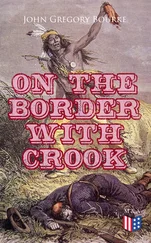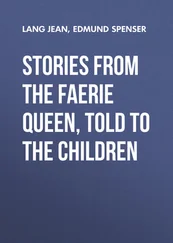John Lang - Stories of the Border Marches
Здесь есть возможность читать онлайн «John Lang - Stories of the Border Marches» — ознакомительный отрывок электронной книги совершенно бесплатно, а после прочтения отрывка купить полную версию. В некоторых случаях можно слушать аудио, скачать через торрент в формате fb2 и присутствует краткое содержание. Жанр: literature_19, foreign_antique, foreign_prose, на английском языке. Описание произведения, (предисловие) а так же отзывы посетителей доступны на портале библиотеки ЛибКат.
- Название:Stories of the Border Marches
- Автор:
- Жанр:
- Год:неизвестен
- ISBN:нет данных
- Рейтинг книги:5 / 5. Голосов: 1
-
Избранное:Добавить в избранное
- Отзывы:
-
Ваша оценка:
- 100
- 1
- 2
- 3
- 4
- 5
Stories of the Border Marches: краткое содержание, описание и аннотация
Предлагаем к чтению аннотацию, описание, краткое содержание или предисловие (зависит от того, что написал сам автор книги «Stories of the Border Marches»). Если вы не нашли необходимую информацию о книге — напишите в комментариях, мы постараемся отыскать её.
Stories of the Border Marches — читать онлайн ознакомительный отрывок
Ниже представлен текст книги, разбитый по страницам. Система сохранения места последней прочитанной страницы, позволяет с удобством читать онлайн бесплатно книгу «Stories of the Border Marches», без необходимости каждый раз заново искать на чём Вы остановились. Поставьте закладку, и сможете в любой момент перейти на страницу, на которой закончили чтение.
Интервал:
Закладка:
The news of the treacherous taking of his follower was not long in reaching Buccleuch, who at once raised an angry protest. Scrope, the English Warden, received this with an evasive and obviously trumped-up counter-charge of Kinmont Will having first broken truce. Moreover, he said, he was a notorious enemy to law and order, and must bear the penalty of his misdeeds. This was more than the bold Buccleuch could stomach.
"He has ta'en the table wi' his hand,
He garr'd the red wine spring on hie —
'Now Christ's curse on my head,' he said,
'But avenged of Lord Scrope I'll be!
O, is my basnet a widow's curch?
Or my lance a wand o' the willow-tree?
Or my arm a ladye's lilye hand,
That an English lord should lightly me?'"
No time was lost in making an appeal to King James, which resulted in an application to the English Government. But while the English authorities quibbled, paltered, and delayed – with a little evasion, a little extra red-tapism, a little judicious procrastination – the days of Kinmont Willie were being numbered by his captors. The triumph of putting an end to the daring deeds of so bold a Scottish reiver when they had him safely in chains in Carlisle Castle, was one that they were not likely lightly to forego. It would be indeed a merry crowd of English Borderers that flocked to Haribee Hill on the day that Will of Kinmont dangled from the gallows.
Buccleuch saw that he had no time to lose. He himself must strike at once, and strike with all his might.
The night of April 13, 1596, was dark and stormy. All the Border burns and rivers were in spate; the winds blew shrewd and chill through the glens of Liddesdale, and sleet drifted down in the teeth of the gale. The trees that grew so thick round Woodhouselee bent and cracked, and sent extra drenching showers of rain down on the steel jacks of a band of horsemen who carefully picked their way underneath them, on to the south. Buccleuch was leader, and with him rode some forty picked men of his friends and kinsmen, to meet some hundred and fifty or so of other chosen men. Scotts, Elliots, Armstrongs, and Grahams were there, and although Buccleuch had requested that only younger sons were to risk their lives in the forlorn hope that night, Auld Wat o' Harden and many another landowner rode with their chief. "Valiant men, they would not bide," says Scott of Satchells, whose own father was one of the number. Kinmont Willie's own tower of Morton, on the water of Sark, about ten miles north of Carlisle, was their rallying point. Buccleuch had arranged every detail most carefully at a horse-race held at Langholm a few days before, and one of the Grahams, an Englishman whose countrymen were not yet aware that the Graham clan had allied themselves to that of the Scotts, had conveyed his ring to Kinmont Willie to show him that he was not forgotten by his feudal lord. One and all, the reivers were well armed, "with spur on heel, and splent on spauld," and with them they carried scaling ladders, picks, axes, and iron crowbars. The Esk and Eden were in furious flood, but no force of nature or of man could stay the reivers' horses that night.
"We go to catch a rank reiver
Has broken faith wi' the bauld Buccleuch."
That was the burden of their thoughts, and although they well knew that ere the dawning each one of them might be claiming the hospitality of six feet of English sod, their hearts were light. To them a message that the fray was up was like the sound of the huntsman's horn in the ears of a thoroughbred hunter.
"'Where are ye gaun, ye mason lads,
Wi' a' your ladders, lang and hie?'
'We gang to berry a corbie's nest,
That wons not far frae Woodhouselee.'"
No light matter was it to harry that corbie's nest. Carlisle Castle was a strong castle, strongly garrisoned, and to make a raid on an English town was a bold attempt indeed. But fear was a thing unknown to the Border reivers, and the flower of them rode with Buccleuch that night – close on his horse's heels Wat o' Harden, Walter Scott of Goldielands, and Kinmont's own four stalwart sons – Jock, Francie, Geordie, and Sandy. As the dark night hours wore on, sleet and wind were reinforced by a thunderstorm.
"And when we left the Staneshaw-bank,
The wind began full loud to blaw,
But 'twas wind and weet, and fire and sleet,
When we came beneath the castle wa'."
When the besiegers reached the castle they found some of the watch asleep, and the rest sheltering indoors from the storm. The outside of the castle was left to take care of itself. It was dismaying to find the scaling ladders too short to be of any use, but a small postern gate was speedily and quietly undermined. Drifting sleet, growling thunder, and the wails of the wind drowned all sounds of the assault, and soon there was no further need for concealment, for the lower court of the castle was theirs. The guard started up, to find sword-blades at their throats; two of them were left dead, and the rest were speedily overpowered. Buccleuch, the fifth man in, gave the command to proclaim aloud their triumph:
"'Now sound out trumpets!' quoth Buccleuch;
'Let's waken Lord Scroope right merrilie!'
Then loud the Warden's trumpet blew —
'O wha daur meddle wi' me?' "
While Buccleuch himself kept watch at the postern, two dozen stout moss-troopers now rushed to the castle gaol, a hundred yards from the postern gate, forced the door of Kinmont Willie's prison, and found him there chained to the wall, and carried him out, fetters and all, on the back of "the starkest man in Teviotdale."
"Stand to it!" cried Buccleuch – so says the traitor, a man from the English side, who afterwards acted as informer to the English Warden – "for I have vowed to God and my Prince that I would fetch out of England, Kinmont, dead or alive."
Shouts of victory in strident Scottish voices, the crash of picks on shattered doors and ruined mason-work, and that arrogant, insolent, oft-repeated blast from the trumpet of him whom Scrope described in his report to the Privy Council as "the capten of this proud attempt," were not reassuring sounds to the Warden of the English Marches, his deputy, and his garrison. Five hundred Scots at least – so did Scrope swear to himself and others – were certainly there, and there was no gainsaying the adage that "Discretion is the better part of valour." So, in the words of the historian, he and the others "did keip thamselffis close."
But no sooner had the rescue party reached the banks of the Eden than the bells of Carlisle clanged forth a wild alarm. Red-tongued flames from the beacon on the great tower did their best, in spite of storm and sleet, to warn all honest English folk that a huge army of Scots was on the war-path, and that the gallows on Haribee Hill had been insulted by the abduction of its lawful prey.
"We scarce had won the Staneshaw-bank,
When a' the Carlisle bells were rung,
And a thousand men on horse and foot,
Cam' wi' the keen Lord Scroope along.
Buccleuch has turn'd to Eden Water,
Even where it flow'd frae brim to brim,
And he has plunged in wi' a' his band,
And safely swam them through the stream.
He turned them on the other side,
And at Lord Scroope his glove flung he —
'If ye like na' my visit in merry England,
In fair Scotland come visit me!'
All sore astonished stood Lord Scroope,
He stood as still as rock of stane;
He scarcely dare to trew his eyes,
When through the water they had gane.
'He is either himsel' a devil frae hell,
Or else his mother a witch maun be;
I wadna' have ridden that wan water
For a' the gowd in Christentie.'"
Интервал:
Закладка:
Похожие книги на «Stories of the Border Marches»
Представляем Вашему вниманию похожие книги на «Stories of the Border Marches» списком для выбора. Мы отобрали схожую по названию и смыслу литературу в надежде предоставить читателям больше вариантов отыскать новые, интересные, ещё непрочитанные произведения.
Обсуждение, отзывы о книге «Stories of the Border Marches» и просто собственные мнения читателей. Оставьте ваши комментарии, напишите, что Вы думаете о произведении, его смысле или главных героях. Укажите что конкретно понравилось, а что нет, и почему Вы так считаете.












